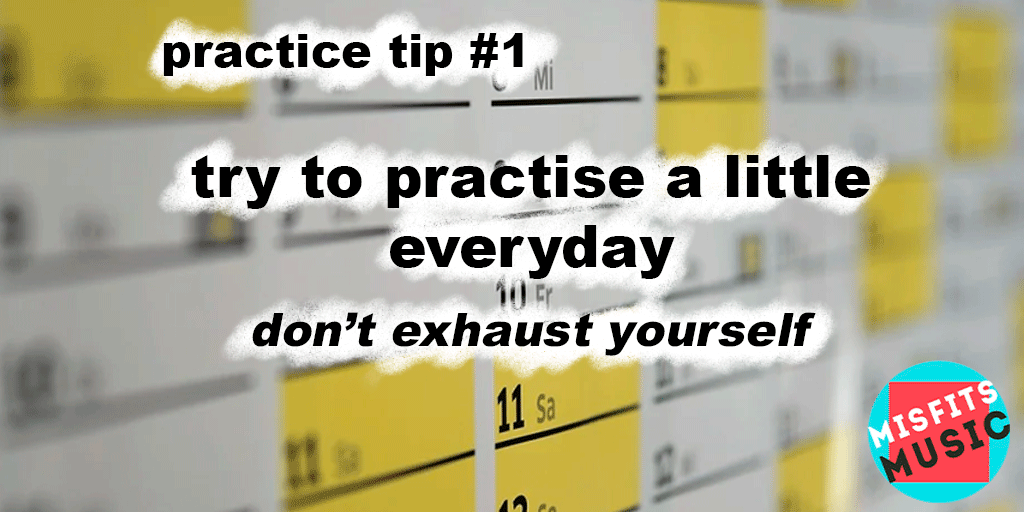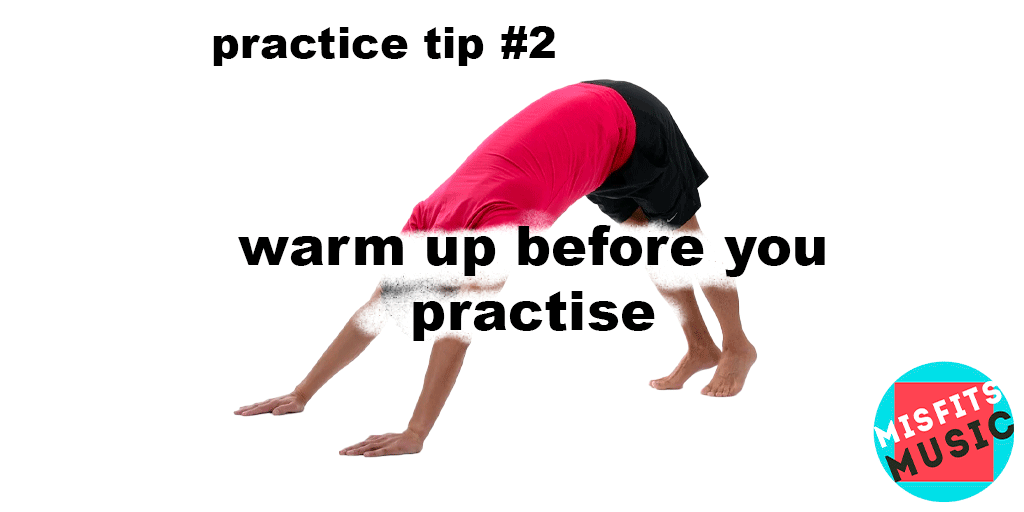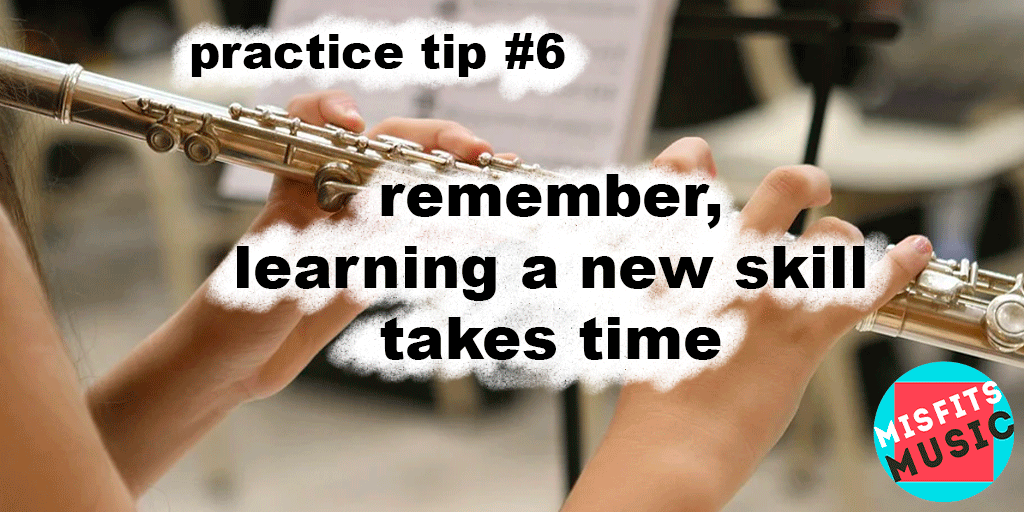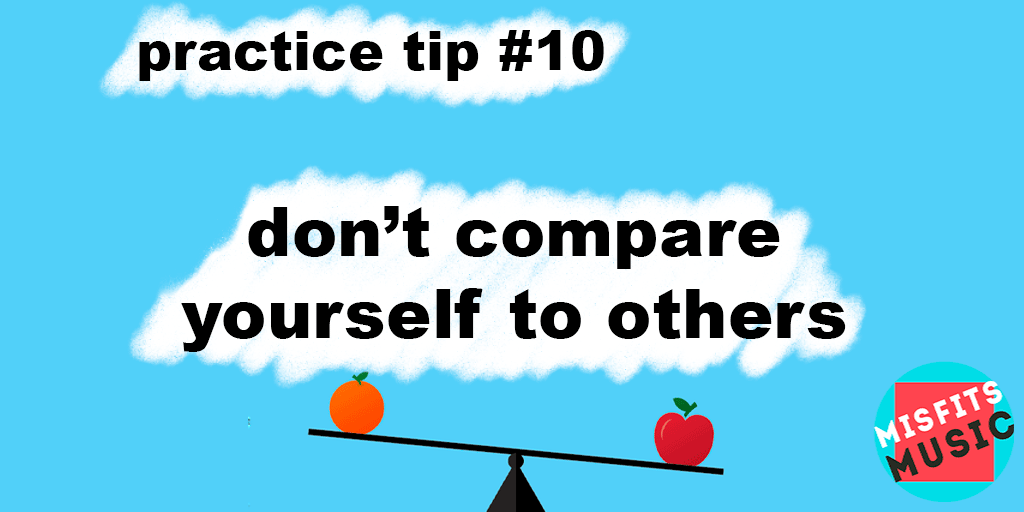Tips for practising at home
It all begins with an idea.
by Reuben penny
Whether you are starting out learning an instrument or you are a seasoned veteran, practising your musical instrument can sometimes be … a bit of a drag. If you haven’t picked up your instrument in a while, some of these tips may help you to get back into the swing of things.
Setting and achieving small daily goals to every day will help you to start practising. Even just picking up your instrument, make a noise, play a scale are legit goals. Keeping this up for a while will help you to get practise into your daily routine. Of course, you will need to expand upon your goals as you progress but this is a good start.
You wouldn’t run a marathon without warming up, you would hurt yourself. Similarly, you can potentially hurt yourself if you don’t warm up before practising your instrument.
A good guide to this can be found here.
It’s also important to stay hydrated. Being hydrated is crucial for many reasons: to regulate body temperature, keep joints lubricated whilst improving your cognition, and mood. Whilst practising, it’s always a good idea to keep a bottle of water around to '“top up the tank”, and incidentally removing another excuse for you to break away from your practise to pop to the kitchen.
Imagine studying for an exam or test. Is it better to do one long study session just before the deadline or look through your notes every day for a little while in short focused bursts?
Well, I would encourage people to stay focused on an initial starting point of 20 mins every day. It’s enough time for you to play through a few scales and a few pieces whilst but not enough that your lip can go, or get muscle strain, etc. With regular practice, you’ll find your endurance will increase and you’ll be able to play for longer and longer without getting tired. You’ll also find practising less demanding as you don’t have to cram everything into one session. Breaking up your practice goals across a few days seems much less daunting than trying to blast through everything in one go.
There may be several reasons why playing a musical instrument might be painful but with teachers guidance, most issues can be sorted.
The number 1 reason that playing your instrument might be painful, is bad posture. Getting your posture right keeps your back strong, prevents issues like tendonitis and also allows you to get the most out of your instrument. If you are starting out on an instrument, get the guidance from an instrumental teacher so they can show you the best posture for your specific instrument as every instrument puts different demands upon the body.
Reed and brass players can find that their lips can become saw or blistered without regular practice, (HINT: this is one of the signs that show wind teachers whether you have practised or not). Similarly, instrumentalists that play with their hands and fingers like bassists, percussionists and guitarists may find that without practice they may get blisters. Regular practice strengthens/hardens soft skin which will prevent pain in the future. This is more a matter of persistence than guidance but the point is clear. To ensure you don’t hurt yourself, practice regularly and if playing starts to hurt, stop.
Another point on hydration. Dehydration is known to promote cramping in muscles which obviously feels horrible. Ensure you are hydrated before you start practising to give your body the best chance to prevent cramping.
Now, don’t use this as an excuse to not practice in the same way that someone might clean the house rather than submit a tax return.
Keeping your practice space tidy will provide a much more enjoyable playing experience for you. Having an organised space keeps your mind uncluttered, no scrabbling for music under piles of paper, no losing bits of your instrument (the list goes on and on.) The perks are fairly obvious however, it can be very easy to let books, reeds, mugs and other paraphernalia build-up whilst you are in “the zone”. Cleaning up after every practise gives you the best chance of focusing on the tasks in hand.
Keep your space tidy. You’ll never lose your scales exercise sheet again.
Living within the wondrous internet age, we are constantly exposed to many flashy videos, articles and social media posts touting household hacks or products that will save you time and money. Very much like the actual results of products promoted in these clickbaity infomercials, the results of taking shortcuts during your practice can be similarly underwhelming and problematic.
No one masters a new skill without hard work and perseverance
If you are stuck or have questions when practising at home, don’t battle through alone. There are always resources in the form of books, videos, CDs, and websites that cater to your specific instrument but the best way to get the answers you need is to ask a fellow musician or teacher. If you don’t know any musicians, a great place to start looking is to contact your local music shop or look up any local music groups. These organisations are usually connected enough to put you in contact with someone who can help you out.
Are you in a rehearsal and a bit lost? It’s always better to either ask your conductor or sneakily ask the person next to you where you are. It’s always better for you to ask questions to get the answers you need than wait and never find out the issue. Just be aware that during a rehearsal, it may be better to ask questions after the rehearsal has finished but be assured that your conductor will always be happy to help.
Obvious when you think about it.
Just be sure that you know how to look after your instrument properly. Rather than going into specifics for every instrument
keep your instrument clean
keep your instrument in a case when it is not in use
check your instrument has been properly lubricated
Keep your instrument stored in its ideal conditions
If you don’t know how to look after your instrument, ask a professional.
If your instrument breaks and you don’t know how to fix it, get it fixed by a professional. Don’t do it yourself!
Fairly straight forward stuff I’m sure you can agree.
Chocolate may not be the way to go on this, however, when you overcome an obstacle or achieve a particularly difficult goal, don’t be afraid to #treatyoself.
Setting a little treat aside for yourself for completing something you have struggled with for a while may give you the push to try that little bit harder or get help over the hump. Positive reinforcement with an edible treat is a way to start but think about something that you might not normally do, maybe rent a film you want to watch, put some money aside for a frivolous purchase. That way you are not going to add to your waistline or get into any nasty snacking habits while you’re practising.
This can be not easy, especially within the internet age. Videos and recordings of concerts, child prodigies, friends, family etc. can be fairly disheartening when they are executing a piece, technique or a specific skill perfectly when you have been struggling to do the same.
Work through the things you find hard in your own time. We all learn different skills at different paces, and you have to realise that you may struggle with some things when others seem to excel. Just know that the inverse will also be true, there will be others who will struggle to do the things you find easy.
You’ll get there in the end.
Take inspiration from the achievements of others but don’t get too caught up in it.
Look for a group in your area that can support you when you are playing.
Playing music with other people helps in some great ways developing skills that will last a lifetime.
Build your team working skills.
Be motivated by others around you.
Make friends.
Improve your musicality.
(Plug Time) The Moseley Misfits or the CAPO group and gives you a reason to play music regularly.
If you come across a section of music that you can’t fathom, try working from the end of the bit and work backwards through the passage.
Now let me make myself clear, don’t go backwards…
Rather, start on the last note of the passage, play that note. Move backwards a note, play that and work forwards. Repeat this so that eventually you will have worked through the whole passage, having broken it down by repeatedly playing through it.
Many people fall into the trap of running before they can walk when approaching a difficult musical passage or piece.
My advice;
Using a metronome, try to stick to a speed where you feel comfortable playing the material correctly without any mistakes. (This may be much slower than the marked tempo speed but that doesn’t matter).
Increase the speed of your metronome gradually with each play through until you start making mistakes.
Decrease the tempo again to where you are not making mistakes and continue to practice at this speed and really get to know the material you are struggling with.
Increase the tempo again, using the knowledge from your slower practice to get your performance in new faster speed right.
Continue to up the speed until you reach the marked performance tempo.
If you have not already got a music teacher it is very worth finding one. I guess, in many ways, this is an obvious place to start when learning an instrument but taking the plunge can sometimes be difficult.
A great site to look for local teachers can be found here.
All teachers are different and will bring their own spin to teach you. Carefully read through profiles to see whether they have a background in the styles and techniques that you want to learn. For example, approaching a classical guitarist may not be the ideal match for the student wanting to learn how to play grunge guitar.
Obviously, you don’t have to perform to anyone but having the option, opens the door to many other fun musical adventures.
If you don’t feel confident playing to people, I suggest that you record yourself using a phone, camera or laptop. The fact that something is recording your performance requires some confidence to overcome but does not carry a live performance pressure in front of someone. You can always delete a recording if you want, but you also choose to show someone.
Again, playing in a group is a way to get into performing to an audience. To some extent, you can hide behind others. The focus is never solely on you. The responsibility is shared with several other people around you.

















